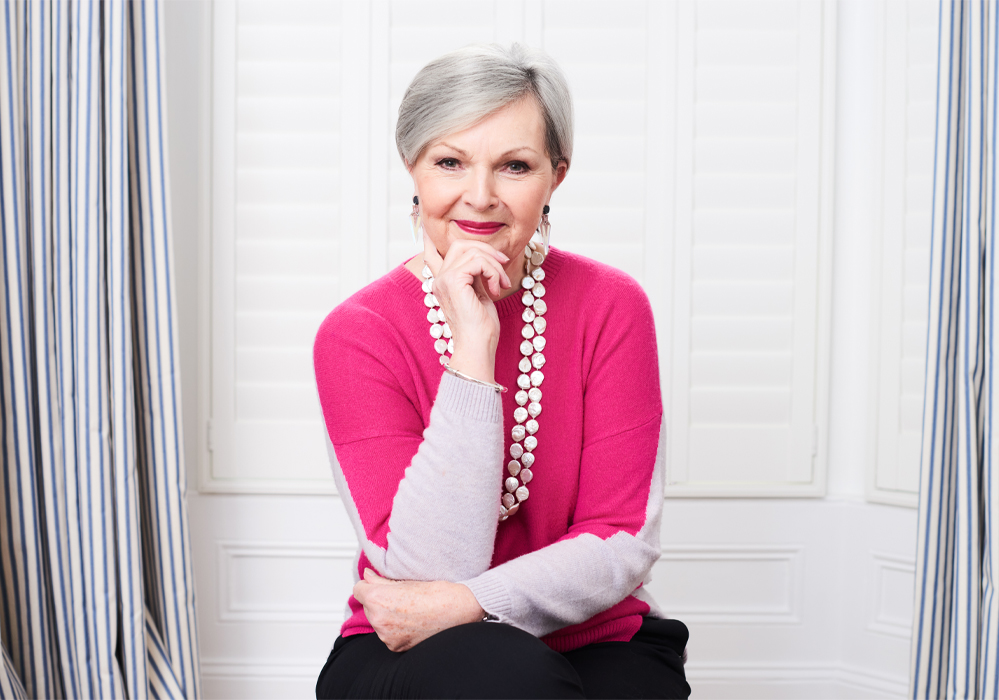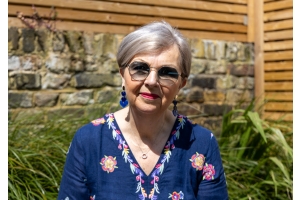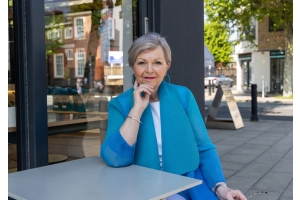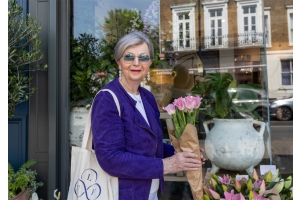
When Queen Elizabeth died in 2022 she was 96 years old. Her husband, Prince Philip had died the previous year aged 99. So, their first born son Prince Charles, had both parents still in his life as he moved into his 70s. He then lost them both, one after the other, in rapid succession.
This could just be the story of a family with good genes and great privilege having extremely long lifespans, but in fact it is a relatively common phenomenon for those of us born to young mothers in the post-war period.
We may be the only generation to experience this coincidence of young women who married young and gave birth to us in their early 20s and who then benefitted from rising affluence, giving us living parents well into our own older age.
I lost my own parents at the relatively young age of 42 (my mother) and 48, but I have several friends who have seen their parents survive well into their 90s whilst themselves being in their 60s or, like King Charles, their 70s. This subject snagged my interest on Woman’s Hour this week, so I thought I’d discuss some of the ramifications here. I would be very interested to have your own thoughts and experiences about very long lived parents at the end in the comments section.
1- “She had a good innings.” In a society that deals very badly with death, we look for words of consolation to say to the bereaved person. If the person who dies is a child, there are none. But if the person has lived a very long life, the immediate thought is that this is the natural order of things, so surely there will be little grief and no reason to mourn the loss. But what if your mum or dad was your best friend, your rock or your cheerleader, someone who was unfailingly ‘in your corner’ and who's loving presence you have had for your entire adult life? The loss could well be devastating but few will understand or acknowledge the depth of your grief.
2- The loss of a buffer between you and your own death. Families are like trains with the older generation at the head and the children, grandchildren and great-grandchildren as the carriages linked in line. Whilst you have a parent still living you continue to be someone’s child and therefore not the person at the head of the train. I felt this most strongly when my mother died, maybe because I myself had girls and I had grown up in a matriarchal family. The buffer has gone when you no longer have living parents. You are out front and the next in line, bringing intimations of your own mortality.
3- When your own parents become your children. In evolutionary terms parents are there to ensure the survival of the young. Their protective role ends with the independence of the offspring that they have guided towards taking responsibility for their own lives. Well, that’s the theory anyway. In practice, and for a myriad of good reasons, that dependency might last well into adulthood. However, with very long lives there will inevitably come a time when your parents may become increasingly dependent on you. This can be for emotional, practical or even financial or physical support, but you will know the point at which you end up parenting your own parents.
4- Who gives the most care? Which then begs the question which ‘child’ is most likely to be expected to provide that care and support. I am going to suggest that in the majority of cases it is the daughters and daughters-in-law to whom this burden (and I use this term advisedly) will fall. Not always, and I am sure that there will be wonderful stories of sons who have stepped up to the plate, but women are mostly thought to be the best people to supply the kind of care needed by the older person. Which brings me to….
5- Sibling Issues. Parents and grandparents often provide the glue that binds the wider family together. If they stay in the family home way beyond the point at which it is convenient, it may be for the express purpose of providing a place large enough for the occasional big family get-together. When the family home is sold, possibly to fund care or in a move to downsize, those bonds may start to loosen and problems may emerge. The last years of very long-lived lives may see sibling rivalries emerge, especially if one of the siblings assumes a dominant or controlling role or one of them feels especially ‘put upon’ by others who refuse to pull their weight.
6- Caught between two stools. You and your partner have lived a long and happy life together. You've raised your kids, worked hard and are now looking forward to fulfilling some of the dreams for retirement that you have long hoped for. Trouble is, your children have delayed marriage and children and have only now presented you with your first grandchildren, and your aged parents are suddenly experiencing some serious health issues. That dream of freedom to finally enjoy yourselves starts to evaporate as you agree to look after your adorable grandchildren for one or two days a week to save on exorbitant childcare costs, whilst looking at how to give support to your Aged P’s in order to mitigate the exorbitant cost of their care.
I started by saying that we are the first generation to experience the phenomenon of becoming orphans for the first time well into our own old age. We may also be the last because ever-increasing longevity is stalling for the first time, and because our children have not given birth at the young age that we did ourselves. I was 60 when I became a grandmother for the first time, but when my daughter and son-in-law are 60, their two sons will be 25 and 23, and those sons will only be 55 and 53 if they live to 90.
Queen Elizabeth’s extreme longevity prevented her son Charles from inheriting the crown and assuming the role for which he had been preparing his whole life until he himself was an old man. None of us will experience a similar fate, apart, perhaps for those family firms (Murdoch?) whose patriarch refuses to cede control to the (no longer so much) younger generation. And don’t worry, I am very conscious of the need for ‘succession’ within our own family business!
Gandhi said “Live as if you were to die tomorrow. Learn as if you were to live forever.” I have always taken this to mean that we should make the most of every moment of our lives whilst continuing to learn from those experiences. If you have very long-lived parents there will be much to learn about how to prepare for your own extra years in order to minimise the impact on your own children. Sign those papers, turf out all that stuff, have those tricky conversations, and future-proof as much as possible. Then relax, cross your fingers and hope for the best. When my time comes my ardent wish is for there to be a good balance between grief and relief but with absolutely no regrets.
What are your thoughts?
Tricia x
Watch Our Latest Video...
73 Questions With Tricia
I've been asked so many questions over the past 10 years about running the business, but also about me and my life. So, inspired by the famous Vogue 73 questions, here's some insight for you. Grab a cup of tea, sit back and enjoy - I hope you find interesting...
Upcoming Events:
Friday 1st September

Film Club: The Thirteenth Tale
Available on Amazon Prime
Watch the film beforehand and join us for a group discussion!
Day: Friday 1st September March 2023
Time: 4pm
Link: https://us02web.zoom.us/j/86109288705?pwd=TUgzQW5IK0VnUGI2MGdtb0FQN3hxZz09
Meeting ID (if needed): 861 0928 8705
Password (if needed): LOOKFAB














